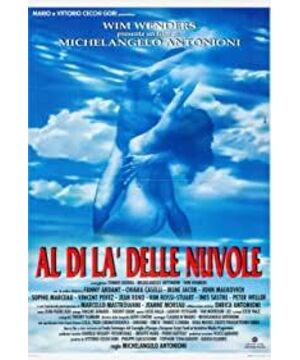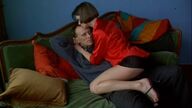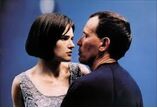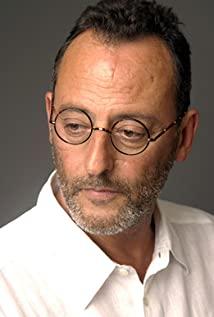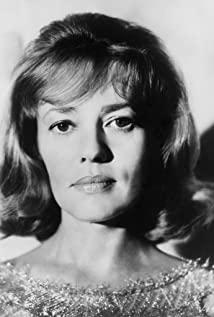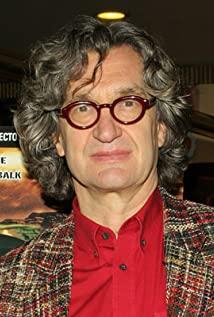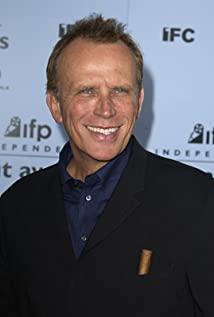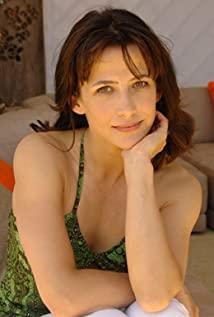can use "vulgar" to express the encounter between the heroes and heroines in "Days on the Clouds". However, after reading the introduction, we know that at the time of the filming of this movie, director Antonioni was already 80 years old. I think the 80-year-old Antao has already deeply realized that in our short and long lives, isn't every encounter an accident? As a work of closing the pen, Andao does not intend to show a beautiful love story. Just like the reflective stream of consciousness approach used in this film, this is an Andao's philosophical reflection on life. Although in the film, he used the words of the wandering director to say that I am not a philosopher, but this does not prevent him from making such a philosophical reflection on life, but his thinking is not in words but in words. He is best at presenting images; strictly speaking, he presents his thinking about life in front of us in the form of images; this is an open-ended thinking, this is an aesthetic presentation of the process of personally experiencing thinking.
Men and women are inseparable from sex. Sex is a way for human beings to know themselves. Sex is also the first thing that everyone has to face when they reach adulthood. Although sex itself does not bring happiness, people who are far away from sex will have a deep, indescribable loneliness. It is recorded in the "Bible" that it is not good for this person to live alone. Although men and women are not rich, they may have the greatest happiness in the world because of the pleasure of sex and the life of love.
However, a person’s knowledge of sex is gradual, and his understanding of life is also gradual. As the Bible says, this is a journey to bear the cross.
The film "Days on the Clouds" has four short stories embedded in a big story shell, which respectively imply life and the four stages of life, beauty, guilt, ethics, and religion. At the beginning of the film, a director who seems to be mature, well versed in world affairs, and very philosophical and reflective, said: "I started to try to define the next work. In silence and darkness, reality can be ignited in the darkness, and outside sounds gradually penetrate in the silence. I believe that there is a kind of power in all things that drives me forward, which is the source of the past and the future of life; but we always stay In the present, I lie to myself, thinking that we are changing in sync with the world. The terrible thing is that we are still stubbornly standing still. I don’t know why I say this, please don’t get me wrong. I’m not a philosopher, on the contrary, I just understand The person who mirrors; only when I was shooting, I discovered the reality, photographed the appearance of things, and tried to discover the things behind them. Apart from this, I have no other achievements in my life."
1. The beauty is
foggy and permeated. The world is in chaos. This first story is a story in memory, everything is imagined by this reflective director, and it tells a story he heard. A past, a past that does not belong to the present; a past of beauty. Let us follow the director’s poetic and beautiful images, through the layers of time fog, and return to that beautiful era?
What kind of era is this?
"The most beautiful thing is that I just passed by accidentally. Why is it beautiful? Because I was going to other places."
Poem-like words, of course, are also poetic years described in poetic pictures. A dream is greater than A realistic place, a place that lives elsewhere as the French poet Rimbaud said.
"My work has brought me to the countryside. My favorite is watching the sunset."
This is an era full of beauty, full of pursuit, full of ideals, full of youthful youthfulness of young people's cynicism, and full of desire. , Is full of wandering, longing for the end of the age.
"Have you noticed that no one is watching the sunset now? Maybe the city people are like that."
Poetic aesthetics is the interpretation of it, eager for love, desire to refuse and welcome, eager to caress and be caressed, eager to possess and be possessed, eager to understand and be understood, hunger and thirst are both spiritual and physical.
A few years later, they met again. Aesthetic dream-like qualities are still the cornerstone of their relationship. The touch of the air, the desire for purity, once again poeticly expressed incisively and thoroughly, the visual impact of the screen, the pinch of desire, and Shi Fanu's timely turn around are very similar to Kierkegaard's "Seduce Family Diary" The implication of the beauty of life expressed in the book.
"The text is always beautiful, especially when it is written. Some smells will always stick to your skin. I can still smell your skin and talk. A few nights ago I went back to the riverside where I stayed last time. Wandering, it feels like you are by your side."
This kind of beauty is useful for life.
2. Guilt
leaves the life of beauty, just as human beings leave the Garden of Eden. Guilt, helplessness, and loss have become the main theme of life. Although as a director, you can't escape it.
The memory of sin:
"Usually guilt drives you to the murder scene, but I go for the opposite reason."
On the bluestone floor by the sea, she told him that she had killed her father and stabbed him twelve times. A very strange and sensitive number. He smiled and said, why is it twelve dollars, not eleven dollars or something. She said that she didn't know, it was counted by the police later.
Twelve is indeed a very strange number, and it is also very easy to associate. Twelve, what did we think of? In the plot of the murder of the father, we naturally think of the Twelve Apostles. Twelve, maybe it doesn't make much sense in itself, it's the actual number counted by the police.
Make love. Make love. Just make love. Purely making love, on the bluestone floor, in the hut in the shady alley, and then it was over, he left. The look in the eyes outside the window explained an unadulterated encounter.
3. Ethics
has fallen back from dreams to reality. In a naked reality, the following story is natural.
An affair in a cafe. Sex has not been beautifully laid out, and has become a naked sex chat. A man swinging between his wife and lover, a life with only desires.
"Did you have sex with her? The angry mistress asked him.
"I did it with her because I pity her. "He explained.
His mistress couldn't bear it, hysterical and crazy, but in the end the problem between them was solved by sex and sex; the man rudely tore off his mistress's clothes, making naked sex, naked The ground came out. The
wife finally left him, she took away all the furniture. In the rent-seeking house, she met a man who was taken away by his wife and was also a failed marriage.
Why did they all choose to take away all the furniture. Furniture? A room without furniture is no longer a home, just an empty house. The cold furniture is endowed with all the meaning of a home; there is no love in our lives, just a pile of objects; only After sex, making love has become the whole motivation. What can we do besides making love?
As the woman who strikes up in the cafe said at the beginning of this paragraph: “I feel like I’m running too fast, and my soul has followed Can't make it. "Does this passage tell the essence of their lives?
Confusion, confusion, guilt, and empty desire are no longer the beauty of living elsewhere, but naked matter, naked sex, naked empty sex.
4. Religious
dialogue:
Male: Actually I like flowers, but they make me sad. They are beautiful and delicate, but they wither and wither after two days. Japanese gardens don’t plant flowers because they are afraid of flowers. What are you laughing about?
Female: You Fear of death, right?
Male: "Fear" is not enough to describe.
Female: I am afraid of survival.
Male: Young girls are afraid of survival, which is absurd.
Female: Afraid of the inevitable life.
Male: You don’t know how to appreciate survival. What are you expecting?
Female: No expectation.
Male: How is it possible? We only have life, and it is the only thing that really exists. Look! This is life, that is death. You can laugh while you are alive, but you can't even feel it when you die, because you are already in the underworld.
Woman: Your thoughts on this subject are boring.
This is a religious proposition. The man obviously has the philosophical thinking of new century existentialism; Descartes's self-thinking, therefore self-existence. And she said that there is no expectation, no expectation in the world. Obviously this is a medieval Catholic concept, this is a religious view before Protestantism, a religious view that completely abandons self and the world. Obviously this is the case. His thoughts were not approved by the director.
In the following plot, the director comically set up such a scene: a
woman accidentally slipped and fell in the rain. She slipped to the ground and let out an inexplicable and happy "haha...haha..." laugh.
This is also the first time she laughed in the film, and the only time she laughed.
This sudden laughter seems to tell us that human laughter not only comes from happiness and joy, but also from the little things like sesame green beans.
Although religion has been introduced, Andao's treatment of it is only on presentation. As he stated in the opening of the film, he strictly followed it. The movie is only presentation rather than enlightenment.
5. Life
We no longer live in movies, we become homeless people, exposed to the confusion and ridicule of everyone’s eyes, and can’t tell anyone what happened to us, just like the one wandering around in the movie Director is general; like a lonely individual facing God in the image of life. These images will not be in the script or the movie. They are just a kind of memory, a strange memory. The finished movie only remembers one part of it. The complete record has to wait until we start again, from one place or another. Survival, questioning and fantasy can only be accomplished.
"Behind every image is another more real image, and behind this image there is another, behind this one, until the last invisible image, that is our real world."
What is this real world like?
"What if I fell in love with you?"
"It's like lighting a candle in a bright room."
As the recorder of the image, the film master Antonioni presented us with the image of life in his writing, and he has done what he has to do.
View more about Beyond the Clouds reviews


